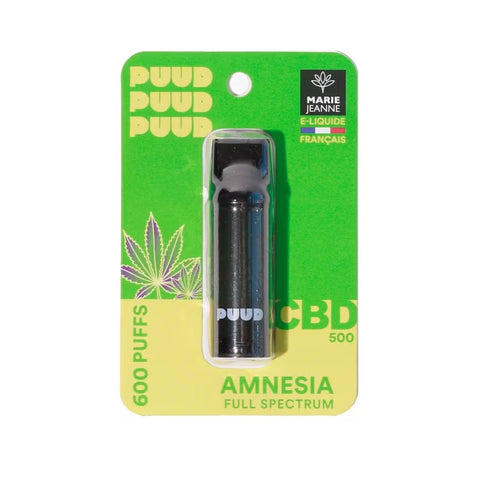The UK, known for its thriving vaping market, is preparing for a significant shift. Beginning in June 2025, all single-use disposable CBD vapes will disappear from shelves as new regulation takes effect. This move signals more than just the end of convenient, ready-to-use CBD devices. It prompts broader questions: what drove this change, who stands to be most affected, and which alternatives are set to become the new standard? For anyone interested in the intersection of policy, the environment, and public health, these developments present both challenges and opportunities.
Why did disposable vapes face a ban?
The rapid rise of disposables has reshaped the UK vape market, especially among younger adults. Devices that are easy to use, compact, and affordable have perfectly matched today’s convenience-focused routines. However, their popularity led to unforeseen consequences. Experts raised serious concerns about how millions of these products were entering regular waste streams each week, sending harmful metals and batteries into landfill sites and recycling centers ill-equipped for such volumes.
A report from Material Focus estimated nearly five million single-use vapes were discarded weekly across the UK in 2024—a dramatic increase compared to previous years. In 2022 alone, authorities noted that lithium batteries thrown out from these devices could have powered thousands of electric vehicles. Alongside mounting environmental worries, a surge in underage usage made clear that urgent action was needed to address both waste and youth access.
How does the ban work and what vape remain legal?
Unlike some sweeping prohibitions, the new UK regulation specifically targets disposable, single-use CBD vapes. Products that cannot be refilled or lack replaceable coils and pods fall within this definition. The primary objective is to reduce unnecessary electronic waste and restrict points of sale that make it easy for minors to obtain nicotine and CBD products.
The government clarified that not every kind of vape faces removal. Refillable and rechargeable models, including classic vape mods, pod kits, and newer rebuildable devices, remain legal. These options create less waste since users purchase e-liquid separately and reuse hardware over longer periods. Many refillable brands now offer more recyclable components and design updates supporting sustainable CBD vaping products.
Impact on everyday vapers
Those used to grabbing a pre-filled device from local shops will notice immediate changes. Many favoured disposables for their simplicity—no charging, no maintenance, just open and use. Their affordability, diverse flavours, and discreet designs also drew in younger adults trying alternatives to traditional cigarettes.
With new sale and supply restrictions, experienced vapers may transition smoothly to long-term devices, but newcomers might need more support. Education about refilling, changing coils, and proper care is expected to become a focus among suppliers and advocacy groups, helping minimize disruption while encouraging responsible habits.
What are the main reasons behind banning disposables?
Two major concerns drive the single-use vape prohibition: environmental impact and youth safety. Environmentally, millions of these devices accumulate quickly. Each contains lithium-ion batteries, circuit boards, and plastics resistant to decomposition. When thrown away with household rubbish, they cause contamination and pose risks to both waste workers and wildlife. Heavy metals leaking from damaged cells only intensify these dangers.

Communities have seen cleanup and recycling costs soar, putting pressure on councils and service providers. Industry experts highlighted cases where lithium batteries sparked fires at sorting facilities, leading to shutdowns and stricter protocols for managing e-waste.
- Rising landfill contributions due to non-recyclable plastics
- Lithium battery disposal causing fire and contamination issues
- Circuit board components introducing toxic substances like cobalt and copper
- Increased community expenses linked to collection and clean-up
Youth uptake represents another key motivator. Despite age limits, the accessibility, bright packaging, and wide flavour range made disposables highly appealing to teenagers. Underage use incidents doubled within a short time frame, indicating that existing controls were insufficient without broader reforms in product design and retail practices.
Where do consumers turn next? Hemphash leads with reusable vape solutions
With the UK ban on disposable vapes taking effect in June 2025, the PUUD CBD vape system emerges as a smart, sustainable alternative. Designed for ease of use, the PUUD Battery is reusable, sleek, and compatible with a range of flavour-rich CBD vape cartridges, making it an ideal choice for both new and experienced users.
Whether you’re transitioning from disposables or upgrading your vaping experience, PUUD offers the perfect balance of simplicity, performance, and sustainability.
Why switch to PUUD?
- Effortless Transition: Just insert a prefilled CBD PUUD cartridge—like Mint, Kush, Paradise, or Amnesia Full Spectrum—and you're ready to go. No buttons, no mess, no hassle.
- Cost-Effective & Reusable: Say goodbye to single-use devices. The PUUD Battery can be recharged and reused with any compatible cartridge, reducing waste and long-term costs.
- Flavour & Quality: Each PUUD cartridge delivers a smooth, satisfying CBD experience with high-quality ingredients and lab-tested formulas, ensuring compliance with UK regulations.
- Environmentally Conscious: The reusable design helps reduce environmental impact, aligning with today’s shift toward more mindful consumption.
As the market moves away from throwaway options, the PUUD system provides a future-proof solution without sacrificing convenience or satisfaction. It’s time to vape smarter—with PUUD.





